Washington, August 5 – Leading up to the first Republican primary debate that will take place in Cleveland, Ohio tomorrow, several candidates are highlighting the importance of talking about disability issues on the campaign trail. In 2012, the Republican nominee Mitt Romney never talked about disability issues and it was not a topic of conversation during the primary. Although the majority of voters either have a disability or a family member or loved one with a disability, disability issues have not been adequately addressed by our public officials in the past.
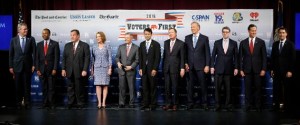
The majority of the Republican presidential candidates participated in a candidate forum in New Hampshire this week, where several candidates went on the record regarding their desires to assist various types of people covered under the Americans with Disabilities Act (ADA).
When Ohio Gov. John Kasich was asked about an issue on which he disagrees with the Republican Party, he said the Republican Party needs to talk more about the importance of helping all people able to obtain employment.
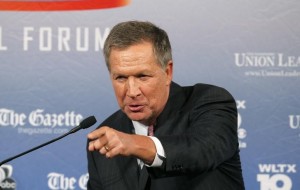
“Economic growth is not just an end unto itself. I think it’s very important that with economic growth comes responsibility and the ability to help people who live in the shadows, whether they are mentally ill or drug addicted,” Kasich said at the Voters First Republican Presidential Forum on the campus of St. Anselm College in Manchester, New Hampshire. “What I’ve tried to emphasize is economic growth, the creation of jobs, is our most important moral purpose. But once that is being accomplished, we need to reach out to people who have traditionally lived in the shadows.”
“Our whole purpose has got to be to give everybody a sense that the American Dream is alive, that we all can rise, whether we are drug-addicted or mentally ill or developmentally disabled, whether we have never been given the attention that we need as made in the image of the Lord,” Kasich continued. “It’s something that I think our party needs to talk more about so that people across this country understand that we get them. Sometimes our problem is that people don’t necessarily think we get them.”
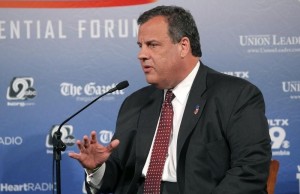
New Jersey Gov. Chris Christie talked about a specific group under the protection of ADA – people with drug addictions. He touted New Jersey’s record of placing first-time non-violent drug offenders in mandatory in-patient drug treatment instead of prison because “this is a disease.”
“We’re looking at this as a moral failing by people. Everyone makes mistakes,” Christie said. “What we need to do is to reach out as a public and embrace those people and say if you’re not a violent offender, if you’re not dealing drugs to our children, then we need to get you treatment rather than prison … Anyone can have this happen to them. And what we need is to have a county and we need to have a president to stand up and say, this is a disease and we need to fix it.”
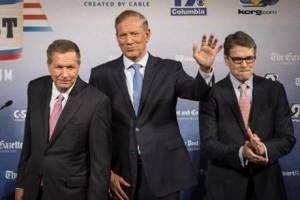
Former New York Gov. George Pataki talked about the importance of helping people with mental health issues. When asked if there is a limit to the Second Amendment, Pataki said he did not think the amendment needed to be changed.
“The problem has been mental health,” the former governor replied. “We have to do a lot more to enforce our mental health laws.”
Several other Republican candidates previously went on the record.
In celebrating the 25th anniversary of ADA, Gov. Scott Walker proclaimed that Sunday, July 26, 2015, is Americans with Disabilities Act 25th Anniversary Day. When he took office, Walker quickly improved policies and practices and made it a key point in his 2014 State of the State address. In Wisconsin, 41 percent of people with disabilities aged 18 to 64 are employed, compared to 80 percent of people without disabilities of the same age range. This is significantly better than the national average which is 30 percent.
Also in celebration of the ADA anniversary, former Gov. Jeb Bush stressed the need to empower people with disabilities in a piece in The Journal by IJReview. The Republican presidential candidate released a video Empowering Individuals with Disabilities with captions, making the video accessible. He had previously highlighted a young woman with autism who is unable to speak or walk in the video “Making a Difference,” and spoke about the importance of taking special care for the most vulnerable people, including children with developmental disabilities in our society, at the Road to Majority Conference in June.
Just last week, former Sen. Rick Santorum lashed out against AbilityOne, an organization supposed to be helping people with disabilities find jobs, for allegedly not using its taxpayer-designated money to do so. “As the father of a special needs little girl, I am sickened by these revelations,” the Republican presidential candidate posted on his Facebook page. “A nation is judged by how it treats the most vulnerable in society.”
Last month when the candidates seeking the Democratic nomination spoke in Iowa, none of the candidates brought up this issue either although Sen. Bernie Sanders later called for people with disabilities to be able to obtain jobs during a rally hosted by the National Council for Independent Living. On the 25th anniversary of ADA, Hillary Clinton’s campaign handed over its Twitter account to a disability advocate and mom in Iowa, although the candidate herself has yet to come on record.
Fully one-in-five Americans have a disability and polls show that most of them want to work. Yet 70 percent of working-age Americans with disabilities are outside of the workforce. This leads to poverty and costs taxpayers billions of dollars in disability benefits.
America has 56 million people with disabilities, more than 20 million of whom are working age. People with disabilities make up the largest minority group in America, and this constituency has the power to swing an election.
Introducing policies that create opportunities for employing people with disabilities is not a conservative issue or liberal issue; it is a human issue, and it affects a large portion of the electorate in the United States. The top issue in the disability community is jobs. Government policies that help people with disabilities get and keep jobs are a win-win because they allow people with disabilities the dignity and financial benefits of work and also grow our economy and save taxpayer money.
Additional reporting provided by James Trout and Dahlia Joseph.
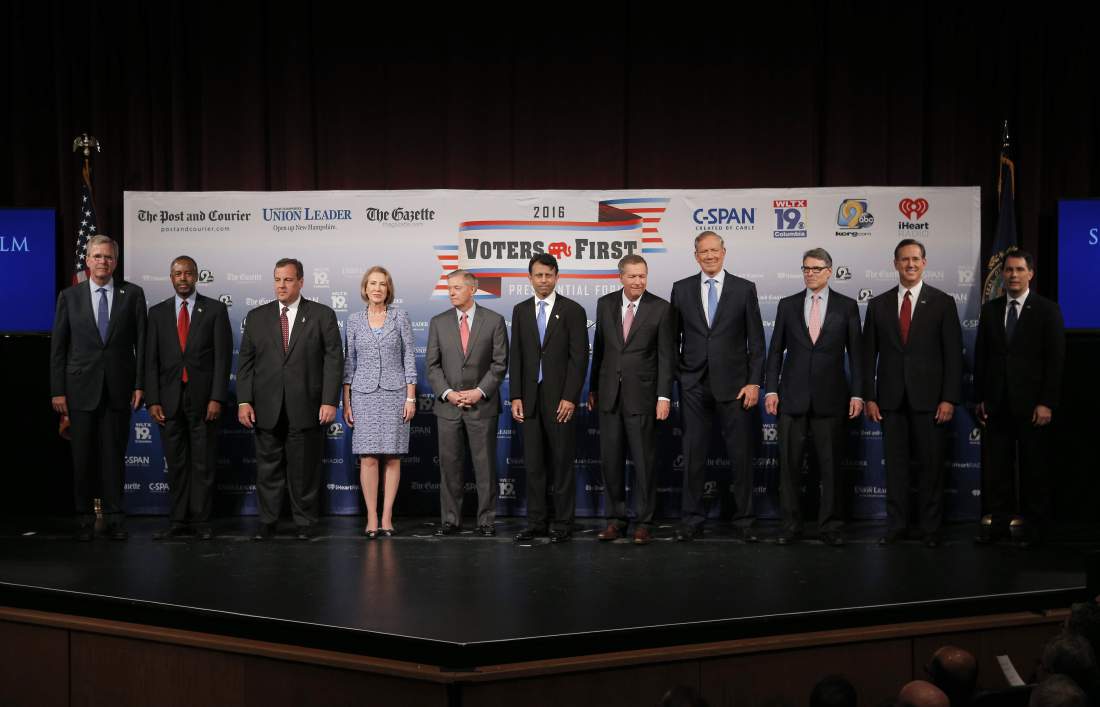
Be First to Comment